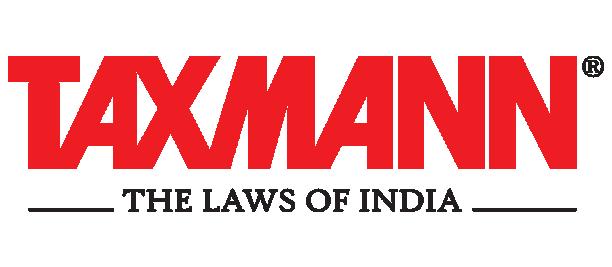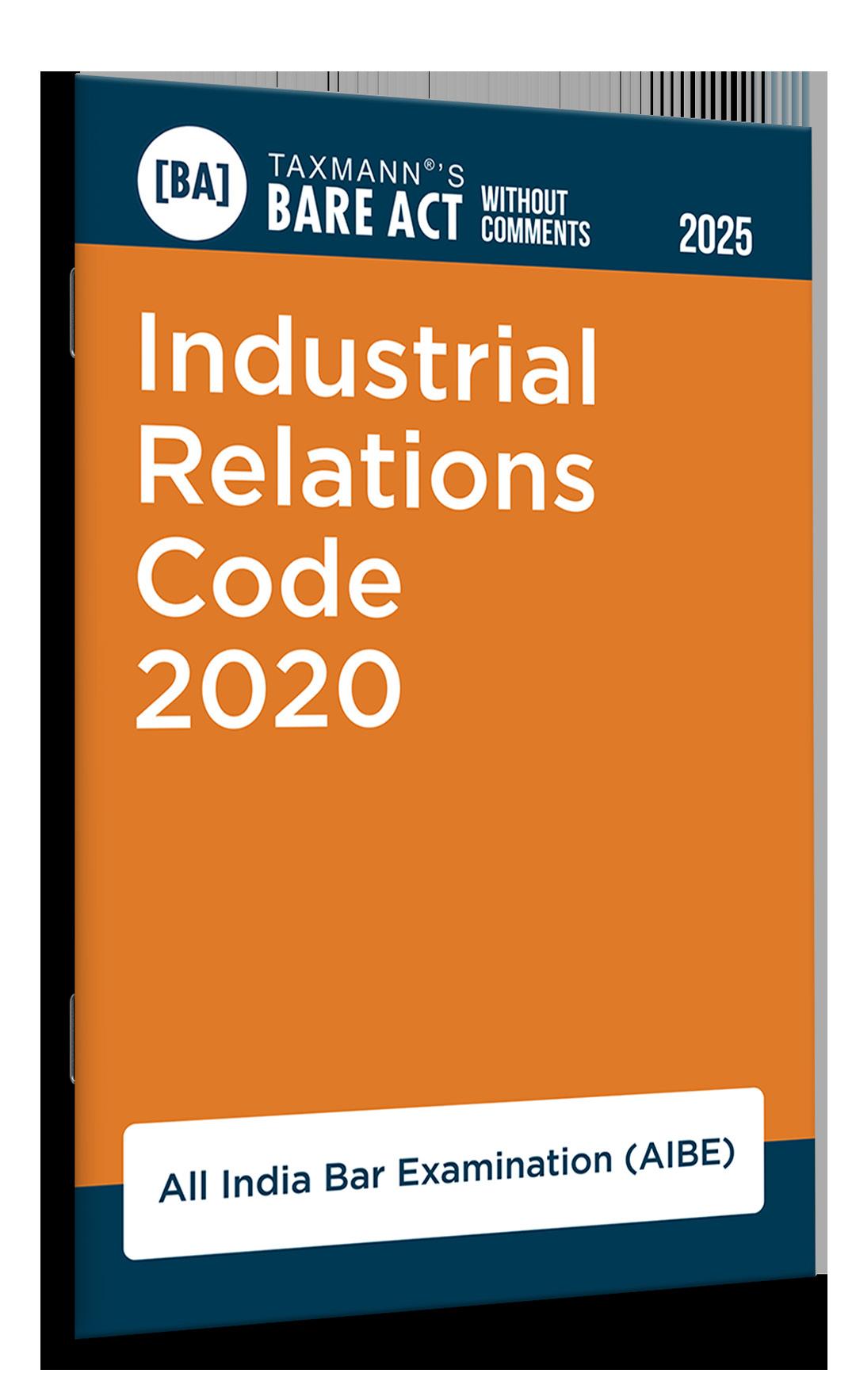


















An Act to consolidate and amend the laws relating to Trade Unions, conditions of employment in industrial establishment or undertaking, investigation and settlement of industrial disputes and for matters connected therewith or incidental thereto.
BE it enacted by Parliament in the Seventy-first Year of the Republic of India as follows:
Short title, extent and commencement.
1. (1) This Act may be called the Industrial Relations Code, 2020.
(2)It shall extend to the whole of India.
(3)It shall come into force on such date as the Central Government may, by notification in the Official Gazette appoint; and different dates may be appointed for different provisions of this Code and any reference in any such provision to the commencement of this Code shall be construed as a reference to the coming into force of that provision.
Definitions.
2. In this Code, unless the context otherwise requires,
(a)“appellate authority” means an authority appointed by the appropriate Government to exercise such functions in such area as may be specified by that Government by notification in the Official Gazette;
(b) “appropriate Government” means,—
(i)in relation to any industrial establishment or undertaking carried on by or under the authority of the Central Government or concerning any such controlled industry as may be specified in this behalf by the Central Government or the establishment of railways including metro railways, mines, oil fields, major ports, air transport service, telecommunication, banking and insurance company or a corporation or other authority established by a Central Act or a central public sector undertaking, subsidiary companies set up by the principal undertakings or autonomous bodies owned or con-
*Dated 28-9-2020.
(
(
(
trolled by the Central Government including establishments of the contractors for the purposes of such establishment, corporation, other authority, public sector undertakings or any company in which not less than fifty-one per cent of the paid-up share capital is held by the Central Government, as the case may be, the Central Government.
Explanation. For the purposes of this clause, the Central Government shall continue to be the appropriate Government for central public sector undertakings even if the holding of the Central Government reduces to less than fifty per cent equity in that public sector undertaking after the commencement of this Code;
ii) in relation to any other industrial establishment, including State public sector undertakings, subsidiary companies set up by the principal undertaking and autonomous bodies owned or controlled by the State Government, the State Government:
Provided that in case of a dispute between a contractor and the contract labour employed through the contractor in any industrial establishment where such dispute first arose, the appropriate Government shall be the Central Government or the State Government, as the case may be, which has control over such industrial establishment;
c) “arbitrator” includes an umpire;
d) “average pay” means the average of the wages payable to a worker,
(i) in the case of monthly paid worker, in three complete calendar months;
(ii) in the case of weekly paid worker, in four complete weeks;
(iii) in the case of daily paid worker, in twelve full working days, preceding the date on which the average pay becomes payable, if the worker had worked for three complete calendar months or four complete weeks or twelve full working days, as the case may be, and where such calculation cannot be made, the average pay shall be calculated as the average of the wages payable to a worker during the period he actually worked;
(e) “award” means an interim or a final determination of any industrial dispute or of any question relating thereto by any Industrial Tribunal referred to in section 44 or National Industrial Tribunal referred to in section 46 and includes an arbitration award made under section 42;
(
f) “banking company” means a banking company as defined in section 5 of the Banking Regulation Act, 1949 (10 of 1949) and includes the Export-Import Bank of India, the Industrial Reconstruction Bank of India, the Small Industries Development Bank of India established under section 3 of the Small Industries Development Bank of India Act, 1989 (39 of 1989), the Reserve Bank of India, the State Bank of India, a corresponding new bank constituted under section 3 of the Banking Companies (Acquisition and Transfer of Undertakings) Act, 1970 (5 of 1970), a corresponding new
bank constituted under section 3 of the Banking Companies (Acquisition and Transfer of Undertakings) Act, 1980 (40 of 1980);
(
g) “certifying officer” means any officer appointed by the appropriate Government, by notification, to perform the functions of a certifying officer under the provisions of Chapter IV;
(
h) “closure” means the permanent closing down of a place of employment or part thereof;
(
i) “conciliation officer” means a conciliation officer appointed under section 43;
(
j) “conciliation proceeding” means any proceeding held by a conciliation officer under this Code;
(
(
k) “controlled industry” means any industry the control of which by the Union has been declared by any Central Act to be expedient in the public interest;
(
l) “employee” means any person (other than an apprentice engaged under the Apprentices Act, 1961 (52 of 1961)) employed by an industrial establishment to do any skilled, semi-skilled or unskilled, manual, operational, supervisory, managerial, administrative, technical or clerical work for hire or reward, whether the terms of employment be express or implied, and also includes a person declared to be an employee by the appropriate Government, but does not include any member of the Armed Forces of the Union;
m) “employer” means a person who employs, whether directly or through any person, or on his behalf or on behalf of any person, one or more employee or worker in his establishment and where the establishment is carried on by any department of the Central Government or the State Government, the authority specified by the head of the department in this behalf or where no authority is so specified, the head of the department, and in relation to an establishment carried on by a local authority, the chief executive of that authority, and includes,
(i) in relation to an establishment which is a factory, the occupier of the factory as defined in clause (n) of section 2 of the Factories Act, 1948 (63 of 1948) and, where a person has been named as a manager of the factory under clause (f) of sub-section (1) of section 7 of the said Act, the person so named;
(
ii) in relation to any other establishment, the person who, or the authority which has ultimate control over the affairs of the establishment and where the said affairs are entrusted to a manager or managing director, such manager or managing director;
(iii) contractor; and
(iv) legal representative of a deceased employer;
(n) “executive”, in relation to a Trade Union, means the body by whatever name called, to which the management of the affairs of a Trade Union is entrusted;
(o) “fixed term employment” means the engagement of a worker on the basis of a written contract of employment for a fixed period:
Provided that
(a) his hours of work, wages, allowances and other benefits shall not be less than that of a permanent worker doing the same work or work of similar nature;
(
b) he shall be eligible for all statutory benefits available to a permanent worker proportionately according to the period of service rendered by him even if his period of employment does not extend to the qualifying period of employment required in the statute; and
(
c) he shall be eligible for gratuity if he renders service under the contract for a period of one year;
(p) “industry” means any systematic activity carried on by co-operation between an employer and worker (whether such worker is employed by such employer directly or by or through any agency, including a contractor) for the production, supply or distribution of goods or services with a view to satisfy human wants or wishes (not being wants or wishes which are merely spiritual or religious in nature), whether or not,—
(
i) any capital has been invested for the purpose of carrying on such activity; or
(
ii) such activity is carried on with a motive to make any gain or profit, but does not include —
(
i) institutions owned or managed by organisations wholly or substantially engaged in any charitable, social or philanthropic service; or
(ii) any activity of the appropriate Government relatable to the sovereign functions of the appropriate Government including all the activities carried on by the departments of the Central Government dealing with defence research, atomic energy and space; or
(iii) any domestic service; or
(iv) any other activity as may be notified by the Central Government;
(q) “industrial dispute” means any dispute or difference between employers and employers or between employers and workers or between workers and workers which is connected with the employment or non-employment or the terms of employment or with the conditions of labour, of any person and includes any dispute or difference between an individual worker and an employer connected with, or arising out of discharge, dismissal, retrenchment or termination of such worker;
(r) “industrial establishment or undertaking” means an establishment or undertaking in which any industry is carried on:
(
(
Provided that where several activities are carried on in an establishment or undertaking and only one or some of such activities is or are an industry or industries, then,
(
i) if any unit of such establishment or undertaking carrying on any activity, being an industry, is severable from the other unit or units of such establishment or undertaking which is not carrying on or aiding the carrying on of any such activity, such unit shall be deemed to be a separate industrial establishment or undertaking;
(
ii) if the predominant activity or each of the predominant activities carried on in such establishment or undertaking or any unit thereof is an industry and the other activity or each of the other activities carried on in such establishment or undertaking or unit thereof is not severable from and is, for the purpose of carrying on, or aiding the carrying on of, such predominant activity or activities, the entire establishment or undertaking or, as the case may be, unit thereof shall be deemed to be an industrial establishment or undertaking;
s) “insurance company” means a company as defined in section 2 of the Insurance Act, 1938 (4 of 1938);
t) “lay-off” (with its grammatical variations and cognate expressions) means the failure, refusal or inability of an employer on account of shortage of coal, power or raw materials or the accumulation of stocks or the breakdown of machinery or natural calamity or for any other connected reason, to give employment to a worker whose name is borne on the muster rolls of his industrial establishment and who has not been retrenched.
Explanation. Every worker whose name is borne on the muster rolls of the industrial establishment and who presents himself for work at the establishment at the time appointed for the purpose during normal working hours on any day and is not given employment by the employer within two hours of his so presenting himself shall be deemed to have been laid-off for that day within the meaning of this clause:
Provided that if the worker, instead of being given employment at the commencement of any shift for any day is asked to present himself for the purpose during the second half of the shift for the day and is given employment then, he shall be deemed to have been laid-off only for onehalf of that day:
Provided further that if he is not given any such employment even after so presenting himself, he shall not be deemed to have been laid-off for the second half of the shift for the day and shall be entitled to full basic wages and dearness allowance for that part of the day;
(u) “lock-out” means the temporary closing of a place of employment, or the suspension of work, or the refusal by an employer to continue to employ any number of persons employed by him;
(v) “major port” means a major port as defined in clause (8) of section 3 of the Indian Ports Act, 1908 (15 of 1908);
AUTHOR : TAXMANN’S EDITORIAL BOARD
PUBLISHER

: TAXMANN
DATE OF PUBLICATION : SEPTEMBER 2025
EDITION : 2025 EDITION
ISBN NO : 9789371266888
NO. OF PAGES : 80
BINDING TYPE : PAPERBACK

Industrial Relations Code 2020 [Bare Act without Comments] by Taxmann, designed for the All India Bar Examination (AIBE), is an authentic and exam-ready text. This Edition reproduces the statutory provisions of the Code as notified by the Government of India, presented in a clear and reader-friendly format. The 2025 Edition ensures accuracy, simplicity, and ease of reference for readers.
The Present Publication is the 2025 Edition, covering the amended and updated text of the Industrial Relations Code [Act No. 35 of 2020], with the following noteworthy features:
• [Authentic Text] Complete statutory provisions as published in the Official Gazette
• [Exam-oriented] Designed for AIBE and other law exams—easy for quick reference & revision
• [Clean Format] Pure Bare Act text without commentary for direct interpretation
• [Updated] Incorporates amendments in force as of 2025
• [Reader-friendly] Systematic arrangement with consistent formatting